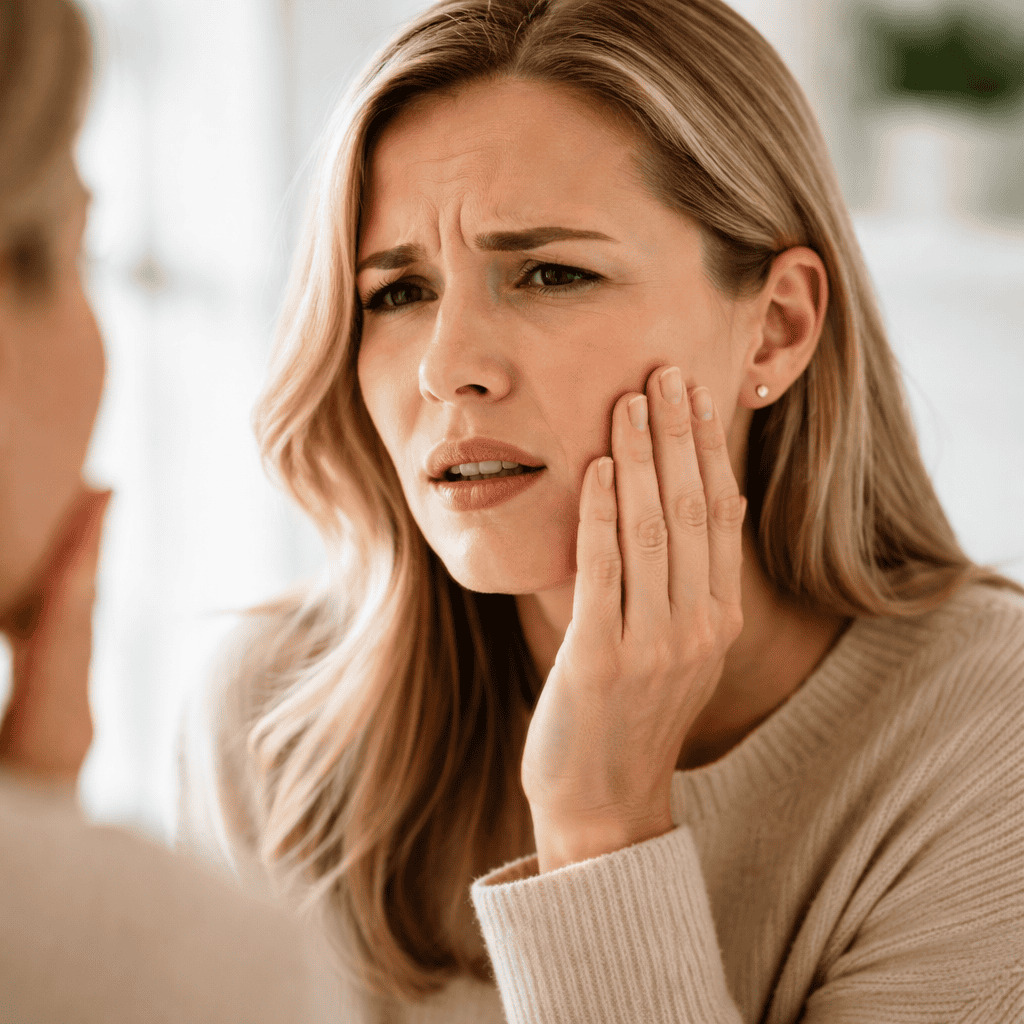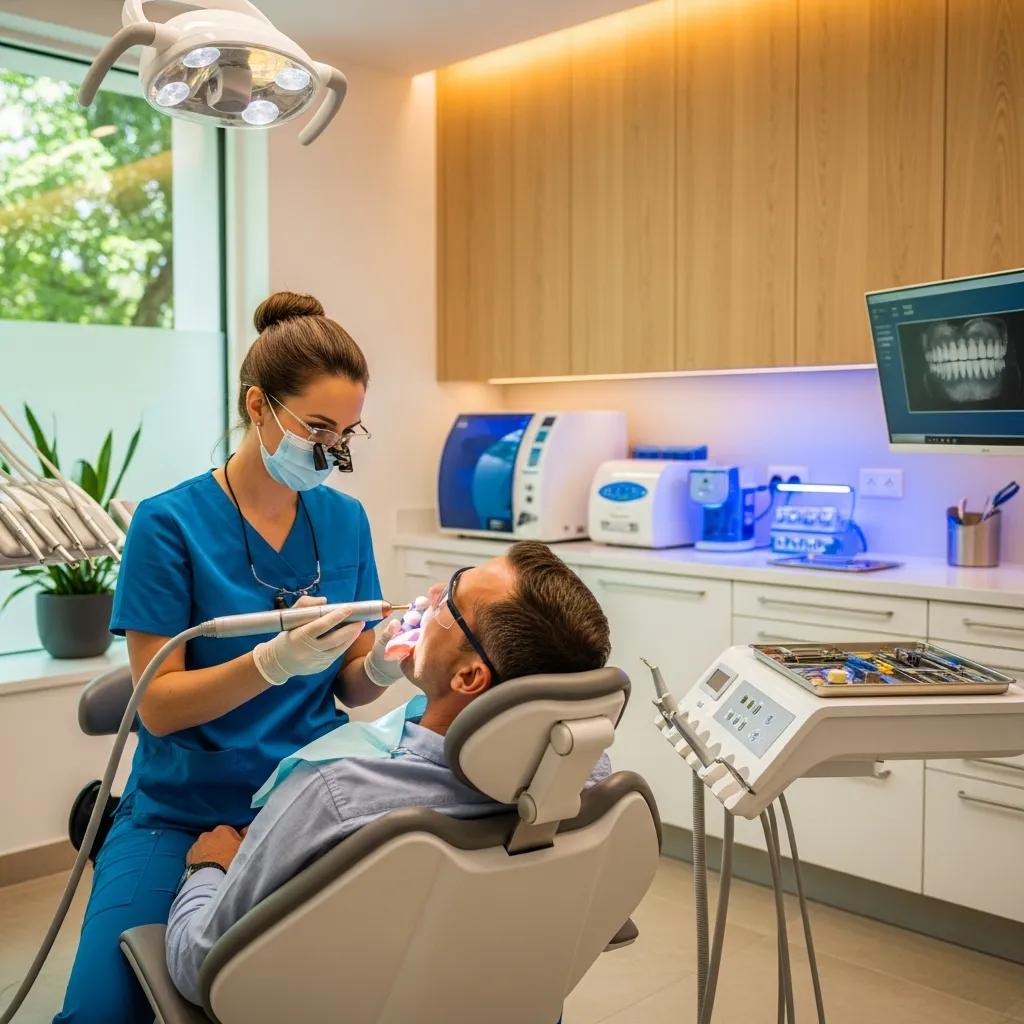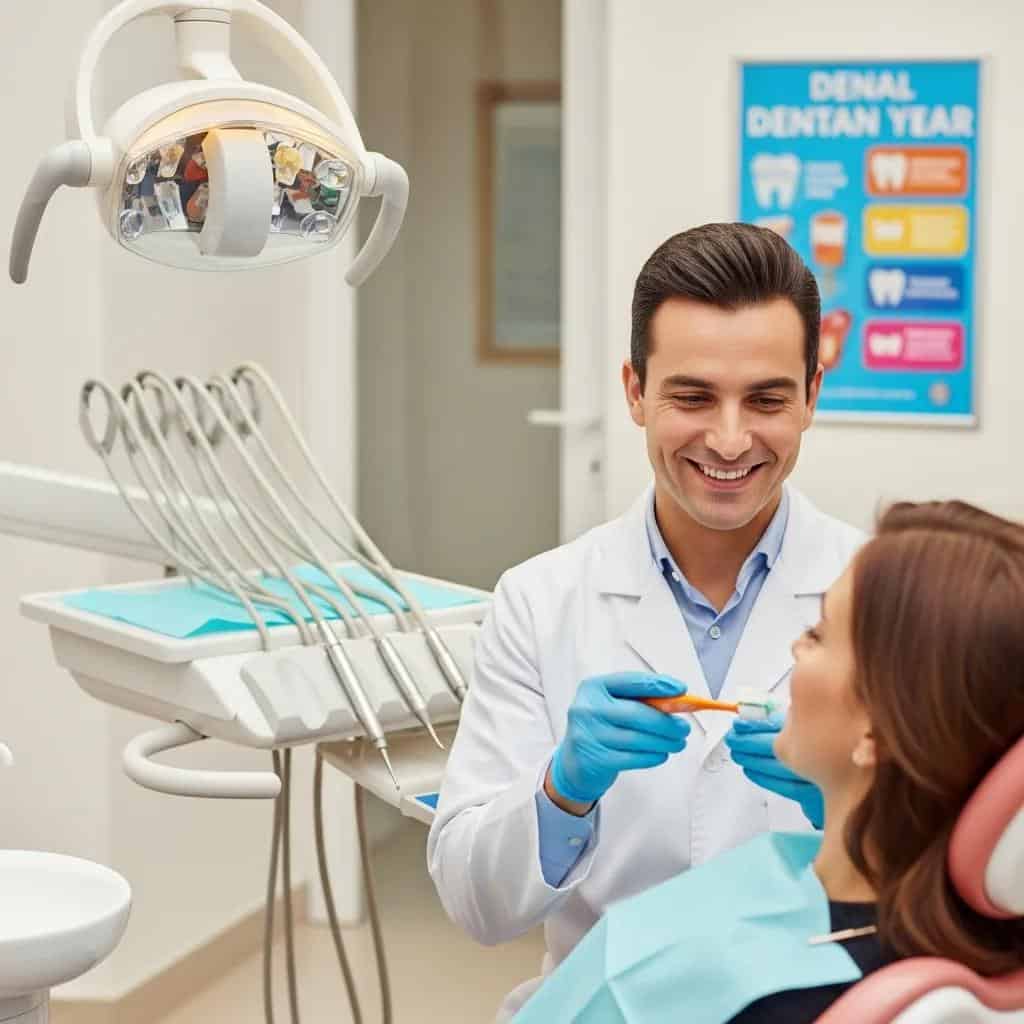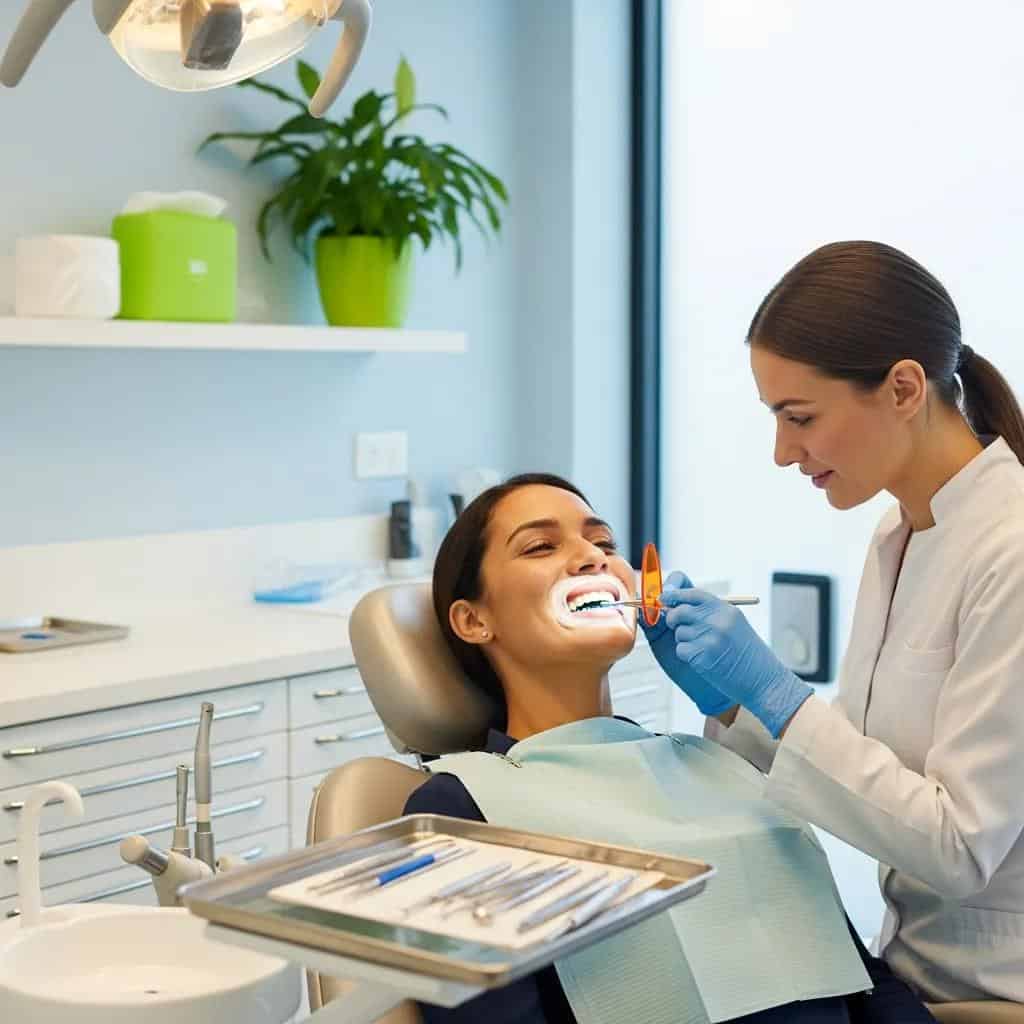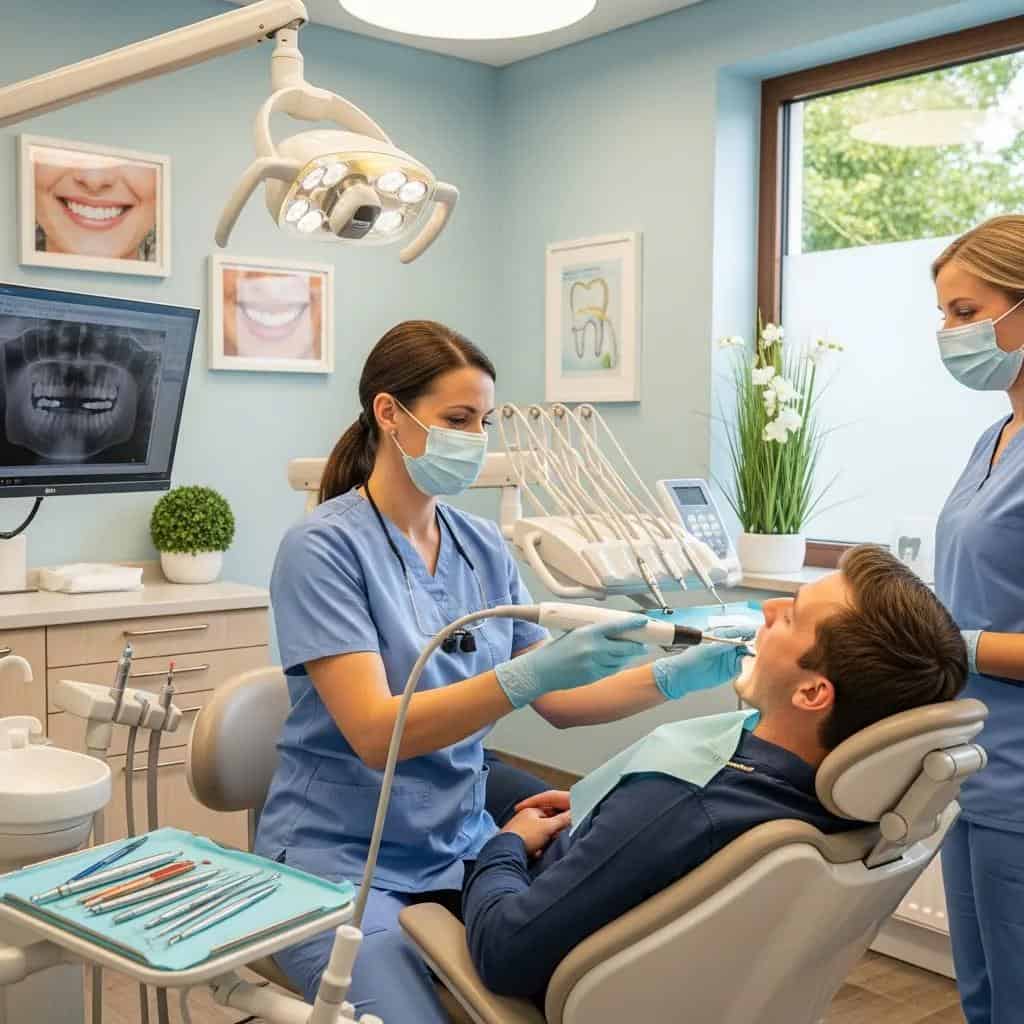Hormones play a vital role in our bodies, influencing various systems,including oral health. Women experience numeroushormonal changes throughout their lives, and these fluctuations can significantly impactthe mouth. This blog postwill dive into how women's hormones affect oral healthduring different life stages and how to keep your mouth healthy through it all.
Puberty
While girls are inpuberty, the body produces more hormones, stimulating dozens of physical transformations. Some changes that often do not get talked about occur in the mouth.Due to the increased levels of estrogen and progesterone, canker sores and red, swollen, or bleeding gumsare commonly experienced by pubescent girls.Maintaining excellent oral hygiene through regular brushing, daily flossing, and semi-annual dental check-ups is the key to avoiding these uncomfortable oral symptoms. These habitseffectively reduce inflammationand oraldiscomfort.
Menstruation
While most women do notnotice any changes to their mouth beforetheir period, it is not uncommonfor someto encountertenderorbleeding gums, canker sores, and swollen salivary glands.The hormonal shiftsbefore and during menstruation trigger these discomforts, which tend tosubsideafter the period concludes. However, if these symptomspersistafter menstruation, it may indicateadifferentdental concern.Women should maintainconsistent oral hygiene throughout their menstrual cycle, with particular diligencethe weekbefore and during menstruation. If gum sensitivity increases during this time, we recommend schedulingyoursemi-annual dental hygiene cleanings about a week after your period ends.
Hormonal Birth Control
Historically, inflammation was a common side effect of birth control. However, modern hormonal contraceptives containsignificantly lower levels of estrogen and progesterone, making them unlikely to cause gum inflammation, according tothejournal Periodontology 2000. Nonetheless, it isessential to inform your dentist if youarecurrently takinghormonalbirth control, as certain medications prescribed for dental conditionsmay impactthe effectivenessofhormonal contraceptives.Additionally, women using oral birth controlhave an almost two-foldincreased risk of experiencing dry socket, an extremely painful condition that can occur after a tooth extraction when the blood clot in the tooth socket becomes dislodged or dissolves, exposing the underlying bone. Althoughrare, dry socketcanlead to infections or other severe complications.
Pregnancy
It is a common misconceptionthat seeing a dentist while pregnant is unsafe.However, this is false. Dental care during pregnancy is not only entirely safe but also necessary. Pregnancyhormones heighten the risk for gum disease.In fact, nearly 60to 75%of pregnant women experience an earlystageofgum diseasecalled gingivitis. Gingivitis tends to develop in the second to eighth monthofgestation.Notable symptoms of gingivitis include red, tender, and bleedinggums. Thankfully,maintainingdiligent daily oral hygiene practices, such as regular brushing and flossing, can effectively manage this condition. Additionally, your dentist may recommend more frequent cleanings during your second and third trimesters to control and prevent its progression.
Menopause
Menopause brings many changes to a woman’s life and body. The shifts in hormone levels cancause several oral symptoms for menopausal women,includingaltered taste, burning sensations in the mouth, and increased sensitivity. Moreover, menopause can lead to two major oral concerns:
Dry Mouth: Saliva is an essential bodily fluid that helps keep the mouth healthyby regulating bacteria levels and removing food particles.Drymouthcan be uncomfortable andheightenthe risk of cavities, gum disease, oral infections, and bad breath. If you experiencedry mouth, sucking on ice chips, increasing your water intake, and usingan over-the-counterdry mouth spray can reduce the dryness and help you maintaina healthy mouth. Avoiding tobacco, alcohol, caffeine and spicy, salty, or sugary foods can also lessen dry mouth.
Bone Loss:During menopause,the decreased amount of estrogen puts you at risk for loss of bone density.Your jawbone firmly anchors your teeth in place. When this bone deteriorates, it can lead to tooth loss.Talk to your dentist and family physician to ensure adequatecalcium andvitamin D arein your diet to minimize the risk of bone loss.
Hormonal shiftscan significantly affect a woman's oral health. Feel free to ask us during your next examif you have any questions about how your hormones affect your mouth. We are here to educate youon youroral healthand providepersonalized tips for maintaininga healthy smile.


